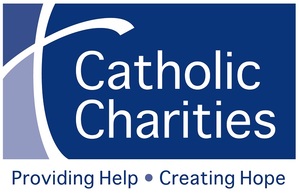
Purpose
The purpose of Catholic Charities is to fight poverty and its consequences through crisis intervention services and by strengthening families resulting in new opportunities and changed futures. This is accomplished with a thorough, compassionate, client-friendly intake/assessment, a review of available organizational resources and applicable community resources, and the development and implementation of an action plan to resolve the crisis to the extent possible.
Our expertise and resources are aimed at families enduring an unexpected, short term crisis that has disrupted their stability. Without our attention and services, inevitably their situation will worsen resulting in numerous additional negative consequences. It is our goal to intervene at the right time with the proper help, so families can recover from the crisis, regain stability, and move forward with their lives.
The theoretical basis of the work of Catholic Charities in rooted in Crisis Intervention Theory:
- address the crisis
- re-store equilibrium and stabilize the family
- recognize other obstacles
- provide support & education
- encourage self-empowerment
We also recognize the need for other family support services that strengthen families and provide temporary relief, avoid a potential crisis, or prevent the same crisis from re-occurring in the future.
Our programs are unable to address chronic problems that require intensive and specialized care. Long term problems that we are unable to address include mental illness, chronic homelessness, substance abuse treatment, and other significant chronic issues. People who come to us with these on-going situations receive kindness and compassion, temporary support if possible (“light touch care”), and are informed of their options for the services they need in the community.

Understanding Poverty
Our response to low-income families in need is rooted in our understanding that that we must always view those we help in the context of their environment. We are sensitive and aware of the harsh realities and the extreme burdens of being poor.
We are acutely aware of the lack of opportunities, institutional failures, and the social injustices that impact the families we serve. Our work must start with where the client is at when they come to us – not where we or others think they should be.
We claim those who come to us as our own brothers and sisters who need some help right now – as all of us do from time to time. So our response is one that is non-judgmental, highly relational and flexible. Our work always begins from a place of compassion and care. We do not just serve families – we embrace them.

